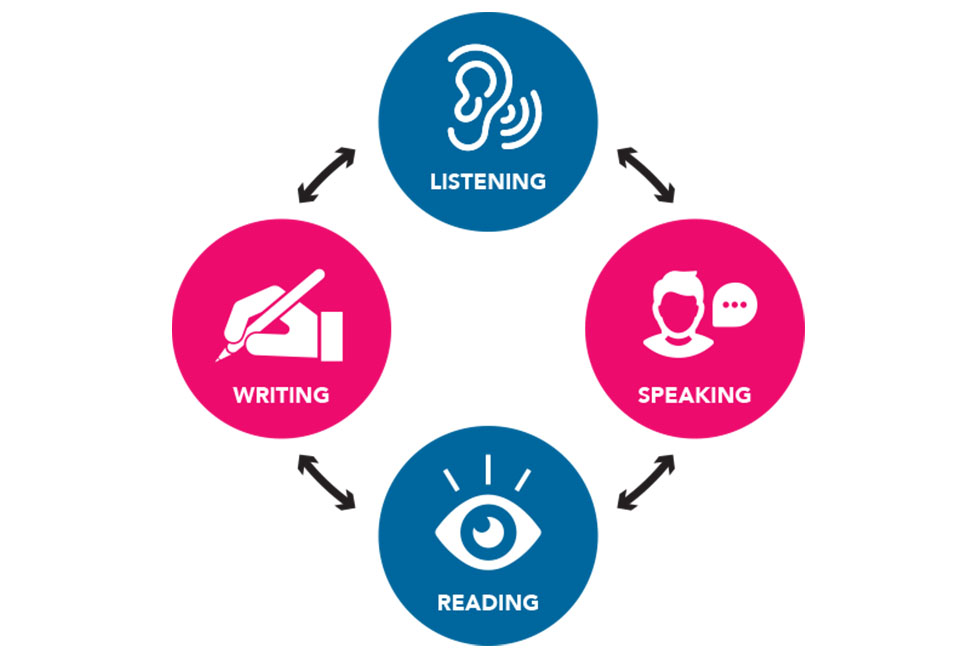Study in Australia
Australia is a popular destination for international students who wish to pursue their studies abroad. The country has a reputation for offering high-quality education, excellent student support services, and a vibrant cultural experience.
There are a range of courses and programs available to international students in Australia, including undergraduate and postgraduate degrees, vocational education and training courses, and English language courses. The country’s education system is well-respected globally, with many of its universities consistently ranked among the top institutions in the world.
To study in Australia as an international student, you will need to apply for and obtain a student visa. The application process will vary depending on your country of origin and the type of course you wish to study. It is important to research the requirements and process thoroughly before applying to ensure you meet all necessary criteria.
In addition to academic requirements, you will also need to demonstrate proficiency in English language, as most courses in Australia are taught in English. There are various English language tests that you can take to meet the language requirement, such as the IELTS, TOEFL, or PTE.
Overall, studying in Australia can provide you with a unique and valuable educational experience, as well as opportunities to explore a new culture and make lifelong connections with people from all over the world.
Why Study in Australia?

1. Australian universities offer academic excellency
You cannot be one of the top 5 most popular study destinations in the world without an excellent higher education system — and Australia certainly delivers!
Its universities are often present in the annual international rankings, which is a testimony of their quality and commitment to support and welcome international students.
2. Take advantage of internships and work placements
Many study programmes at Australia universities include either work placements or internships. These unique opportunities help students to develop real-life experience and discover what they can expect from a certain job or career path.
It also paves the way to a better understanding of the important skills you need as a modern-day employee, including theoretical knowledge, practical abilities, soft skills, digital know-how, and so on.
3. Enjoy an amazing student environment
One aspect that Australia really gets right is the support for international students. Some cities even have dedicated student centres, which are ready to help you with any issue regarding legal rights, getting a job, networking, finding accommodation, and so on.
You should also know that Melbourne has repeatedly been voted as one of the most student-friendly cities in the world, which is quite a feat.
4. Set your inner adventurer free
While Steve Irwin, the famous “Crocodile Hunter”, passed away in 2006, his spirit of adventure and his love for nature are still alive and inspiring others. If you have a hidden adventurer inside, one that you rarely have the chance to let loose, Australia is the place for you!
The continent-country has 20 UNESCO World Heritage sites, over 500 national parks, and more than 2,700 conservation areas, including wildlife sanctuaries and Aboriginal reserves.
How to Apply in Australia
If you’ve decided to study at a university in Australia, you will have to gather the right documents to prove that you fit the university requirements. Provide complete personal information, previous qualifications, financial information, and a personal statement.
What documents do I need to provide to apply in Australia?
Usually, when it comes to application documents, they kind of stay the same wherever you wish to study. But Australia goes the extra mile and wants you to be as detailed in your application as possible. That’s why you have to present:
- Your personal information;
- Your work experience (only if you have been employed before);
- An application fee;
- An English certificate (here, some countries are exempt, so be sure to double check when applying);
- Proof that you changed your name, if you got married (Congrats, I’m sure you looked lovely in the photos!);
- Your grades, or the grade you got at your final exam.
Of course, all these documents have to be translated in English, by a certified translator. So, we’re sorry, you can’t just ask a Facebook friend
Prove your English skills

As you could expect from an English-speaking country, they want your level of English to be on point, and for you to be able to manage in the country without any difficulties.
That’s why Australia has no more or less than 5 options for your English certificate. These are:
- TOEFL
- IELTS
- C1 Advanced
- Victorian Certificate of Education (VCE)
- Pearson Test of English (PTE Academic)
Application deadlines for Australia
Applications deadlines aren’t country-wide for Australia: it will, ultimately, depend on your university and programme.
But, because we’re here to help you out as much we can, you should also know that some of the most important application periods are:
- October – November: application period for the first semester;
- April – May: application period for the second semester;
- Whenever you want, with the help of Studyportals.
Living in Australia

Before packing everything and buying a plane ticket to Australia, you should also think about your budget. While Australian universities offer top-quality education, they aren’t exactly cheap. If you add in the monthly living costs, it’s easy to see how the budget grows fast.
No need to worry though, as there are numerous scholarships available for international students. Now, let’s take a look at the average tuition and living expenses in Australia.
Tuition fees in Australia
Tuition fees charged by Australian universities are some of the highest in the world. For a Bachelor’s degree, tuition ranges between 20,000 and 45,000 AUD/year, while for a Master’s and PhD fees are between 22,000 and 50,000 AUD/year.
Private universities are more expensive than public ones and might not provide access to the same financial aid programmes (e.g. grants, scholarships).
Accommodation costs
On-campus accommodation is the cheapest housing option for students, starting at around 440 AUD per month. If you’d like to rent a place, a one-bedroom apartment will cost anywhere from 1,300 AUD (outside the city centre) to 1,750 AUD (in the city centre).
Healthcare
As an international student in Australia, you will have to arrange health insurance before your departure. Apply for the Overseas Student Health Cover (OSHC), which provides medical and hospital insurance in Australia. Sometimes, your chosen university can arrange for your OSHC coverage on your behalf.
Food costs
Supermarkets in Australia don’t have expensive prices; your monthly groceries can typically cost around 300–600 AUD. If you want to dine out, you should expect to pay around 18 AUD for a meal at a mid-range restaurant.
Overall, living costs start at a minimum of 1,200 AUD per month in smaller cities and at around 1,500 AUD per month in bigger cities.
Work while study in Australia

International students in Australia are generally permitted to work part-time while studying to help support themselves financially. The Australian government allows international students to work up to 40 hours per fortnight (two weeks) during the academic term, and full-time during scheduled course breaks.
Working while studying in Australia can provide many benefits, including gaining valuable work experience, earning extra money to support living expenses, and improving language and communication skills. Some students may also use their work experience to help build their professional network and enhance their career prospects after graduation.
There are various types of jobs available to international students in Australia, such as retail, hospitality, and administration, among others. Many universities also offer work opportunities for students within the institution, such as working in campus libraries, IT services, or research programs.
It is important to note that while working part-time can be beneficial, it is also important to prioritize academic commitments and ensure that work does not interfere with academic performance. It is also important to adhere to visa requirements and ensure that work hours do not exceed the allowable limit.
Overall, working part-time while studying in Australia can provide valuable experiences and opportunities, as long as it is managed responsibly and in accordance with visa and academic requirements.
Australia At a Glance
| Course Duration | Intake | Application Fee | Requirements |
| 3/4 Years (Bachelors) 2 Years (Masters) | February, July, October | 0 To 50 (AUD) | IELTS/TOEFL/PTE Academics-Above 50% to 55% |
| Language Proficiency | Tution Fee (Yearly) | Living Cost (Yearly) | Visa Application |
| IELTS- 5.5+, TOEFL-60+, PTE-42+ | 20000 To 60000 (AUD) | 18000 To 35000 (AUD) | 650 (AUD) |
| Air Ticket | Processing Time | Part Time Work | Post Study Work Permit |
| 90000 To 150000 (BDT) | 4-6 Months | 20 Hrs (per Week) | Up to 60 Months |
Our Affiliated University List
| Sr No | University Name | City |
| 1 | The University of New South Wales, | Sydney |
| 2 | University of Western Australia College, | Perth |
| 3 | University of Wollongong, | Wollongong |
| 4 | University of Tasmania, | Hobart & Launceston. |
| 5 | Swinburne University of Technology, | Melbourne. |
| 6 | Griffith University, | Gold Coast & Brisbane |
| 7 | La Trobe University, | Sydney Campus. |
| 8 | James Cook University, | Townsville and Cairns |
| 9 | James Cook University, | Brisbane |
| 10 | Western Sydney University, | Parramatta |
| 11 | CQUniversity Australia, Sydney, | Melbourne, Brisbane & Perth. |
| 12 | The University of Queensland, | Toowoomba, Queensland |
| 13 | Charles Sturt University, | Sydney |
| 14 | Kent Institute Australia, | Sydney |
| 15 | Le Cordon Bleu, Adelaide, | Sydney, Melbourne & Perth |
| 16 | Engineering Institute of Technology, | Perth |
| 17 | International College of Management, | Sydney |
| 18 | Australian College of Applied Professions | Sydney |
| 19 | UNSW Global, | Sydney |
| 20 | University of Adelaide College | |
| 21 | UTS College, | Sydne |
| 22 | The University of Newcastle College of International Education, | Newcastle |
| 23 | Curtin College, | Perth. |
| 24 | Deakin College, | Melbourne. |
| 25 | South Australia Institute of Business & Technology, | Adelaide |
| 26 | Griffith College, | Gold Coast & Brisbane |
| 27 | La Trobe College | |
| 28 | Sydney Institute of Business & Technology | |
| 29 | Edith Cowan College | |
| 30 | Eynesbury College, | Adelaide |
| 31 | University of Canberra College, | Canberra |
| 32 | South Australia Institute of Business and Technology, | Upper Mount Gravatt |




Pingback: বিদেশে উচ্চশিক্ষা অর্জনের জন্য যাবতীয় তথ্য ও উপাত্ত।
Pingback: Employer Nomination Scheme Visa - Openwindow
Pingback: Regional Sponsored Migration Scheme Visa - Openwindow
Pingback: Skilled Independent Visa - Openwindow
Pingback: The Future of Motion Graphics: Predictions and Trends
Pingback: Study and Living in Australia: A Comprehensive Guide
Pingback: Spain Residence Permit Programme with Open Window
Pingback: Cyprus Permanent Residence with | Openwindow